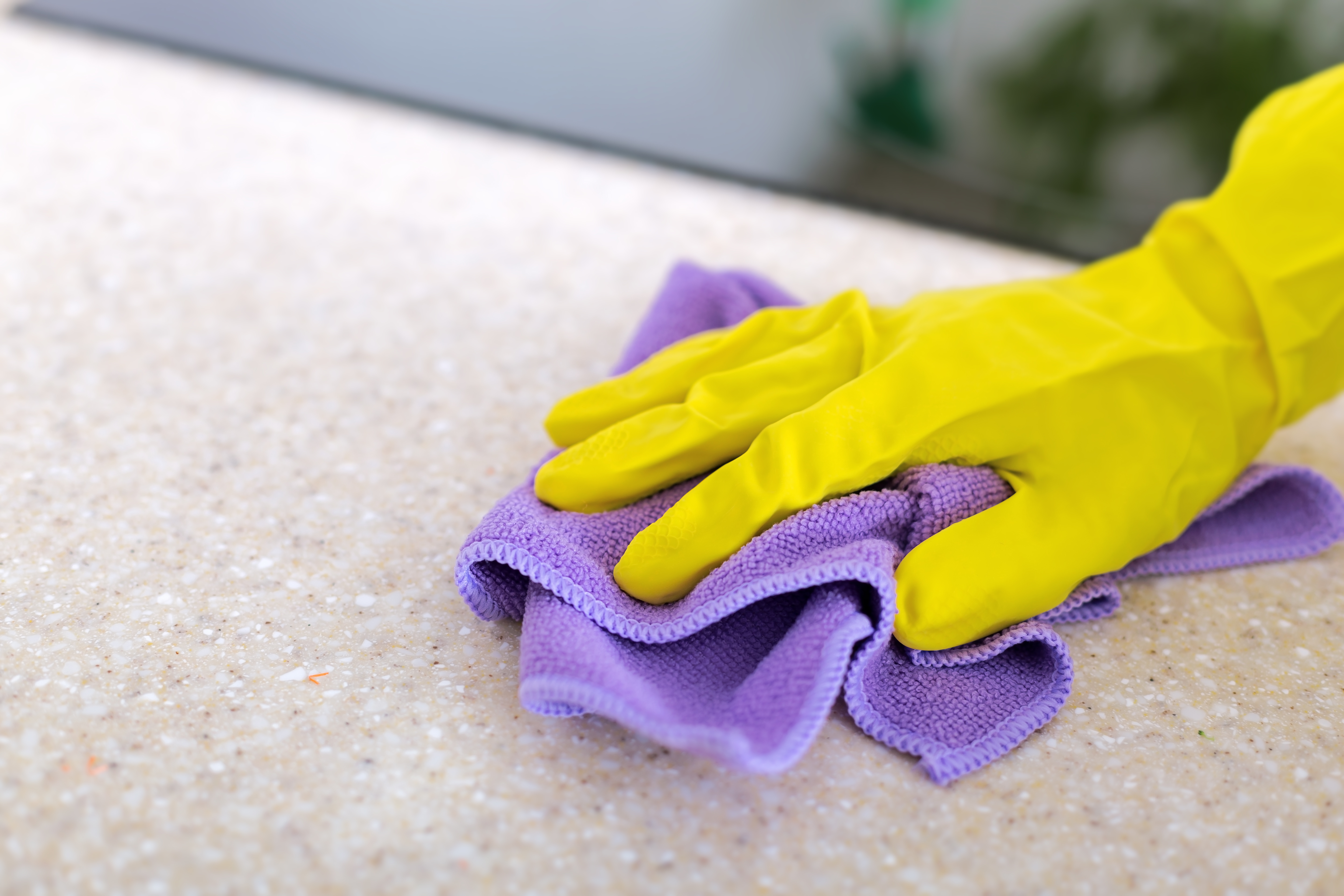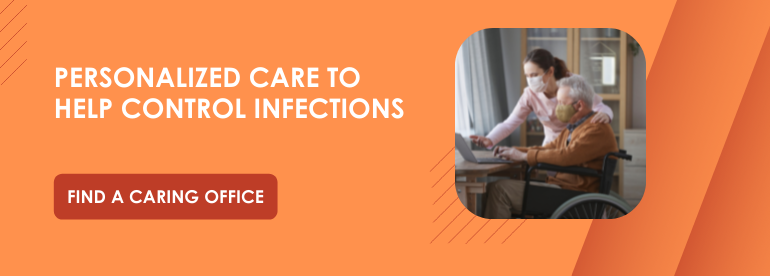The path to a safe, enjoyable living experience for seniors begins with an environment that is inviting and well sanitized. Healthcare workers play a key role in this process enact cleaning measures and keep a watchful eye open for missteps that can compromise the health of seniors, staff, and others. Below are 8 steps to keeping seniors’ environments — whether at home or a facility — clean and sanitized.
1. Review Policies & Procedures
Today's viruses are stronger than ever. Preventing them from sweeping through a senior’s environment is vital to protecting seniors who are vulnerable to their damage. The first step in combating bacteria and viruses is to evaluate your existing policies and procedures and ensure that you have clear guidelines in place for your team so there is no confusion when it comes to sanitization.
2. Assemble a Sanitizing Task Force
Enlisting the participation of a few key members of your healthcare team is a great way for employees to join forces to battle a common enemy (germs, bacteria, and viruses). By assembling a small task force to take the lead on sanitizing, healthcare workers remain engaged, forward thinking, and motivated to set a good example for their colleagues.
3. Ensure Seniors Have Adequate Supplies
"Nursing homes should put alcohol-based hand sanitizer with 60–95 percent alcohol in every resident room — both inside and outside the room if possible — and in every common area. Additionally, nursing homes should ensure sinks are well-stocked with soap and paper towels for hand washing." - Centers for Medicare and Medicaid Services
Healthcare workers who care for seniors should have easy access to the sanitizing supplies they need. When working in a senior care facility, they should not have to leave a senior's room to search for soap, towels, or sanitizer because this could interfere with quality of care and potentially spread infection. All workers should be trained to monitor sanitizing supplies during their shifts and to ensure replacements are available in each room before the supply is fully depleted.
4. Know the Hotspots
Every home or facility has "hotspots" or places that are more apt to have bacteria on their surfaces. Every healthcare worker should know these hotspots and be trained to sanitize them with greater frequency. While no 2 environments are exactly alike, here are some areas and objects that warrant extra attention in most facilities:
- Door knobs
- Handles and railings
- Countertops
- Tabletops in common areas
- Faucets
- Sinks
- Bathrooms (private and public)
5. Consider UVC Lighting
"UVC Lighting is a disinfection method that uses short-wavelength ultraviolet light to kill or inactivate microorganisms by destroying nucleic acids and disrupting their DNA, leaving them unable to perform vital cellular functions... Light in the UVC wavelength can be used for disinfecting duct work, sterilizing surfaces, destroying harmful micro-organisms in food products and in air." - Hughes Environmental
Researchers who study the impact of UVC light on viruses describe it as a potential "game changer," noting that it can kill pathogens in the air before we breathe them in. While the technology is still relatively new, UVC lighting products are beginning to crop up at hospitals, industrial facilities, and transportation facilities across the globe. Senior care facilities can choose from a variety of UVC light disinfection products, including the following:
- In-duct UV lighting
- Mobile disinfection systems
- UVC light disinfection wands
6. Ask for Help from Family Members & Visitors
Securing the buy-in of family members and other visitors is critical to keeping senior care environments safe. Frontline healthcare workers have a prime opportunity to ask visitors for their help in maintaining a clean, safe environment. Here are a few steps workers can take to maintain a sanitized facility:
- Encourage visitors to wash their hands and use provided sanitizers
- Keep an eye out for visitors who appear to be sick or feverish
- Use signage to alert visitors of any special precautions or restrictions
- Communicate with family members if quarantine measures are in place
7. Monitor Employee Supplies & Usage
Gloves, masks, gowns, and other personal protective equipment (PPE) is critical to helping employees prevent the spread of infection. While healthcare workers are often not in charge of ordering or paying for supplies, they can notify the CFO or administration when their stock begins to run low. Additionally, if a worker notices that another employee is not wearing the proper protective gear, the worker should notify their supervisor or management right away.
8. Establish a Culture of Health
Some healthcare workers always seem to have health and safety at the forefront of their minds. When virtually every worker fits this bill, a company has successfully established a culture of health. Here are some simple tips for creating a culture of health at your senior care facility:
- Secure the active buy-in of company leaders. Results will be more impactful with your administration actively involved in the sanitizing process.
- Maintain your focus. Keeping a facility well sanitized does not occur in a vacuum. It is an ongoing process that requires continued emphasis.
- Make the process fun. Believe it or not, the sanitizing process can be fun for workers. Contests, awards, and catchy slogans can help.
- Strive to continually improve your practices. Even if your company is lauded for being sparkling clean, there is always room for improvement.
The Bottom Line
Keeping a senior’s environment properly sanitized during is not always easy — especially during a health scare or pandemic. But through planning and by securing the buy-in of employees, you can greatly reduce the likelihood of an infection outbreak.
To learn more about techniques to keep seniors safe and healthy, we encourage you to reach out to us at Caring Senior Service. Our team of passionate leaders and franchise owners is dedicated to providing the highest quality of care to seniors, especially during the most challenging times. We invite you to contact us today to discover how you can make a difference in the lives of seniors in your area.


